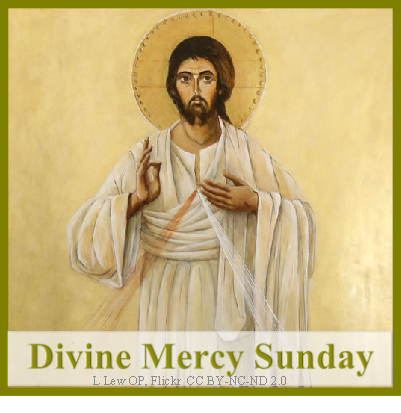24 April 2022
Acts 5:12-16 Revelation 1:9-13,17-19 John 20:19 – 31
Theme: ‘My Lord and My God’ (John 20: 28)
Today’s gospel reading from John recounts three distinct but related events: a) on the evening of first day of the week (Sunday) the appearance of the Risen Jesus to his disciples locked behind closed doors ‘for fear of the Jews’; b) Jesus’ commissioning of his disciples to continue his mission of forgiveness and peace; and c), eight days later, Jesus’ second appearance to his disciples, this time in the company of Thomas, who is brought to believe that Jesus is truly risen by touching the wounds in his risen body. The reading climaxes in Thomas’ great acclamation of faith: ‘My Lord and my God’ (Jn 20:28).
The natural thing to do when we feel anxious or threatened is to withdraw to a safe place, lock the doors, and wait until the danger passes. That is precisely what the disciples of Jesus did following the capture, torture and horrific death of their master. Despite having been told by Mary Magdalene that she had seen the Risen Lord and having heard the message he asked her to tell them, they remain paralysed by their fear, sense of failure, and perhaps guilt that they had not stood by their master. It is in such a confused state that the now Risen Jesus comes to them, not with words of blame or recrimination, but with his peace. His first words are ‘Peace be with you’ (Jn 20:19). The significance of this greeting is underlined by being repeated three times in this short passage. We usually think of peace as the absence of conflict and turmoil, the ending of all those things that make us anxious and fearful. However, the peace Jesus offers is something more profound than the ending of conflict or the resolution of difficulties. The peace Jesus gives us is not the kind of peace the world around us can offer, not the often illusory security that comes from having wealth or power. Earlier in John’s Gospel, Jesus says to his disciples: ‘My peace I leave with you; my peace I give to you. I do not give to you as the world gives. Do not let your hearts be troubled, and do not let them be afraid’ (Jn 14:27). The peace of Jesus not something that we can create from our own resources, but something that can only be received as a gift ‘from above’.
Having freed his disciples from the prison of their own making by his gift of peace, the Risen Jesus, immediately commissions them to continue his mission of peace and forgiveness. For this, he empowers them with the gift of the Spirit. ‘As the Father sent me, so am I sending you. After saying this he breathed on them and said: “Receive the Holy Spirit. For those whose sins you forgive, they are forgiven; for those whose sins you retain, they are retained’ (Jn 20:21-23). As the Risen Jesus came to his disciples, so he comes to us today in the midst of our fears, doubts, pain and confusion. He comes bringing us his peace and breathing into our anxious hearts the empowering breath of the Spirit, embolding us to continue his healing mission of peace and forgiveness.
John tells us that the apostle, Thomas, was not with the group of disciples when Jesus first appeared, but he doesn’t tell us why. Perhaps socially distancing himself from the rest of the apostles was his way of dealing with his grief at what had happened his master. However, Thomas is with them the following Sunday when Jesus again appears to his disciples, openly manifesting in his Risen body the scars of his traumatic recent history. It is surely significant that Jesus does not hide his wounds but invites the ‘doubting’ Thomas to touch them and to ‘doubt no longer but believe’ (Jn 20:27). The wounds in Jesus’ risen body are not old wounds, but wounds so raw that Thomas can place his finger inside them. And it is this intensely physical contact with the wounds of Jesus’ risen body that elicits from Thomas the greatest act of faith in the Bible: ‘My Lord and my God’ (Jn 20: 28).
Besides demonstrating that the Risen Jesus is the same crucified Jesus of Nazareth whom Thomas and the disciples had known and loved, these wounds are, as Pope Francis reminds us in his Urbi et Orbi Message, ‘the everlasting seal of his love for us’. The wounds of the Risen Christ also remind us of the terrible wounds that mar our world today, including the Church, the sacramental body of the Lord – wounds we are challenged to embrace with faith, rather than withdraw from in fear. At this time especially, as images of the horrific sufferings of the people of Ukraine bombard our senses almost hourly, let us, like Thomas, bury our own doubts, fears and confusion in the open wounds of the Risen Jesus. As the prophet Isaiah reminds us: ‘By his wounds we are healed’ (Is 54:5). During this Divine Mercy Sunday and in these difficult and confusing times, we pray that we will find our solace, hope, and courage in the wounded, risen Christ.
Michael McCabe SMA, Cork

